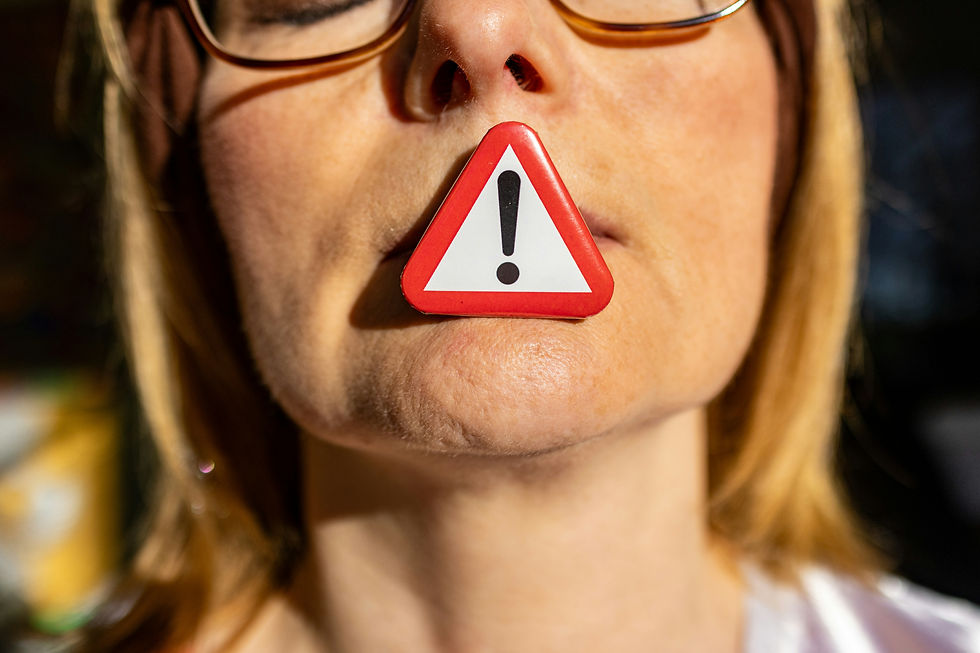The Art of Critical Ignoring: Enhancing Focus and Productivity
- Christine Walter

- Jan 23, 2024
- 3 min read

In today's fast-paced and information-driven world, maintaining focus and productivity can be a daunting task. The constant barrage of notifications, emails, and distractions can easily derail our attention and hinder our ability to accomplish important tasks. However, by embracing the concept of critical ignoring, inspired by William James' philosophy of "the art of being wise is knowing what to overlook," we can regain control over our attention and enhance our ability to focus. In this article, I will explore the concept of critical ignoring and provide specific ways to implement it in our daily lives.
Understanding Critical Ignoring: Critical ignoring is the deliberate act of filtering out irrelevant or unimportant information, distractions, and tasks that hinder our ability to focus on what truly matters. It involves recognizing the value of our attention and directing it towards activities that align with our goals and priorities. By practicing critical ignoring, we can reduce mental clutter, increase productivity, and achieve a greater sense of fulfillment.
Ways to Implement Critical Ignoring:
1. Prioritize and Set Clear Goals: Begin by identifying your priorities and setting clear goals. This will help you determine what deserves your attention and what can be ignored. By focusing on tasks that align with your goals, you can avoid wasting time and energy on less important activities.
2. Limit Digital Distractions: Digital distractions, such as social media notifications and email alerts, can significantly disrupt our focus. Take control of your digital environment by turning off unnecessary notifications, setting specific times to check emails and social media, and using productivity apps or browser extensions to block distracting websites during designated work periods.
3. Practice Mindfulness: Mindfulness is a powerful tool for enhancing focus and concentration. By practicing mindfulness meditation or incorporating mindful moments throughout your day, you can train your mind to stay present and avoid getting caught up in unnecessary thoughts or distractions.
4. Create a Distraction-Free Workspace: Designate a specific area or workspace where you can minimize distractions. Remove clutter, turn off or silence your phone, and create a conducive environment that promotes focus and concentration. This dedicated space will serve as a visual reminder to prioritize your work and ignore distractions.
5. Learn to Say No: One of the most challenging aspects of critical ignoring is learning to say no to tasks, requests, or commitments that do not align with your goals or priorities. Practice setting boundaries and politely declining opportunities that will only serve as distractions or drain your time and energy.
6. Delegate and Outsource: Recognize that you cannot do everything yourself. Delegate tasks that can be handled by others, whether it's at work or in your personal life. Outsourcing certain responsibilities can free up your time and mental energy to focus on what truly matters.
7. Embrace the Power of Selective Ignorance: Not all information is worth consuming. Be selective about the news, articles, and social media content you engage with. Avoid getting caught up in endless scrolling or consuming information that does not contribute to your personal or professional growth. Instead, focus on high-quality, relevant information that adds value to your life.
8. Practice Time Blocking: Time blocking is a productivity technique that involves scheduling specific blocks of time for different tasks or activities. By allocating dedicated time slots for focused work, meetings, breaks, and personal activities, you can ensure that your attention is directed towards the most important tasks at hand.
In a world filled with constant distractions and information overload, the art of critical ignoring is a valuable skill to cultivate. By consciously filtering out irrelevant information, distractions, and tasks, we can enhance our focus, productivity, and overall well-being. Implementing the strategies mentioned above, such as setting clear goals, limiting digital distractions, practicing mindfulness, and embracing selective ignorance, will empower you to reclaim control over your attention and achieve greater success in both your personal and professional life. Remember, the art of being wise is knowing what to overlook. #personalgrowth#lifecoaching#success#motivation#



Comments